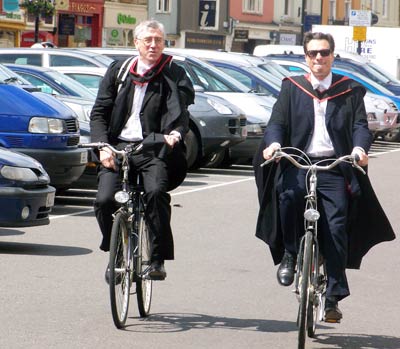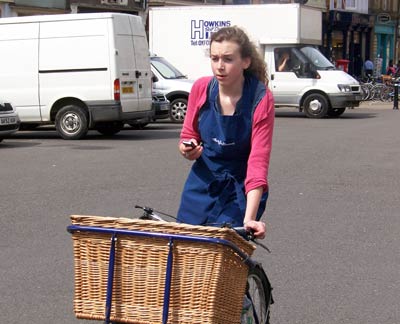
Fortunately or unfortunately, I studied PPE (politics, philosophy, Economics) at university which involved a course in social history and class politics. I have always been fascinated by concepts of class, especially within the UK. For example in Cutteslowe, Oxford, the residents of a private road built a wall to divide themselves from the new ‘council (read working class) estate. (fascinating story and pics here) The wall was knocked down and rebuilt several times, finally coming down in 1959. It was a striking reminder of the class divisions still evident in the UK.

Cycling in many ways has acted as a social leveller. The very early cycling pioneers were wealthy upper class types who had both the money and time to invest in the new sport of cycling. But, when the bike reached the mass production stage, it suddenly became a valuable means of transport for the poor working class. It was a real boon for those who wanted a means of transport but, for whom a car was out of the question. It also helped in giving a sense of freedom to both the working class and women at the turn of the century.

Many early cycling clubs had a social or political slant. This was evident in the famous Clarion cycling club (renamed from the Socialists cycling club) which had strong affiliation to the burgeoning independent labour party and was formed in 1895.
As bike racing developed, cycling became an escape for working class. Many of the great tour de France riders were from poor agricultural backgrounds. Cycling like many other sports was a passport to fame, wealth and an escape from tedious manual labour. Many of Britain’s top cyclists like Robert Millar and Tom Simpson took up cycling as an alternative to factory work in Glasgow and Nottingham. Whatever we see about the corrupted nature of doping in procycling, an event like the Tour de France was a powerful way to bring a nation together. It was an event which passed everybody’s house be it a chateau of the Loire valley or the poorest provincial village. It is a sporting event that touches everyone (whether they like it or not). There is no room for social exclusivity like at an event such as Wimbledon or Ascot.

Today, the bike is one of those universal items which transcend class and politics. This felt evident at Blenheim Palace last year. A celebration of cycling at one of Britain’s most prestigous family estates.
You will see everyone riding a bike from the leader of the opposition, to the Mayor of London, to Oxford Professors. The mightiest person on the humblest of bike. I just think we should get the Queen to turn up to the opening of Parliament on a Penny Farthing. More egalitarian than all those horse drawn carriages.

Leave a Reply